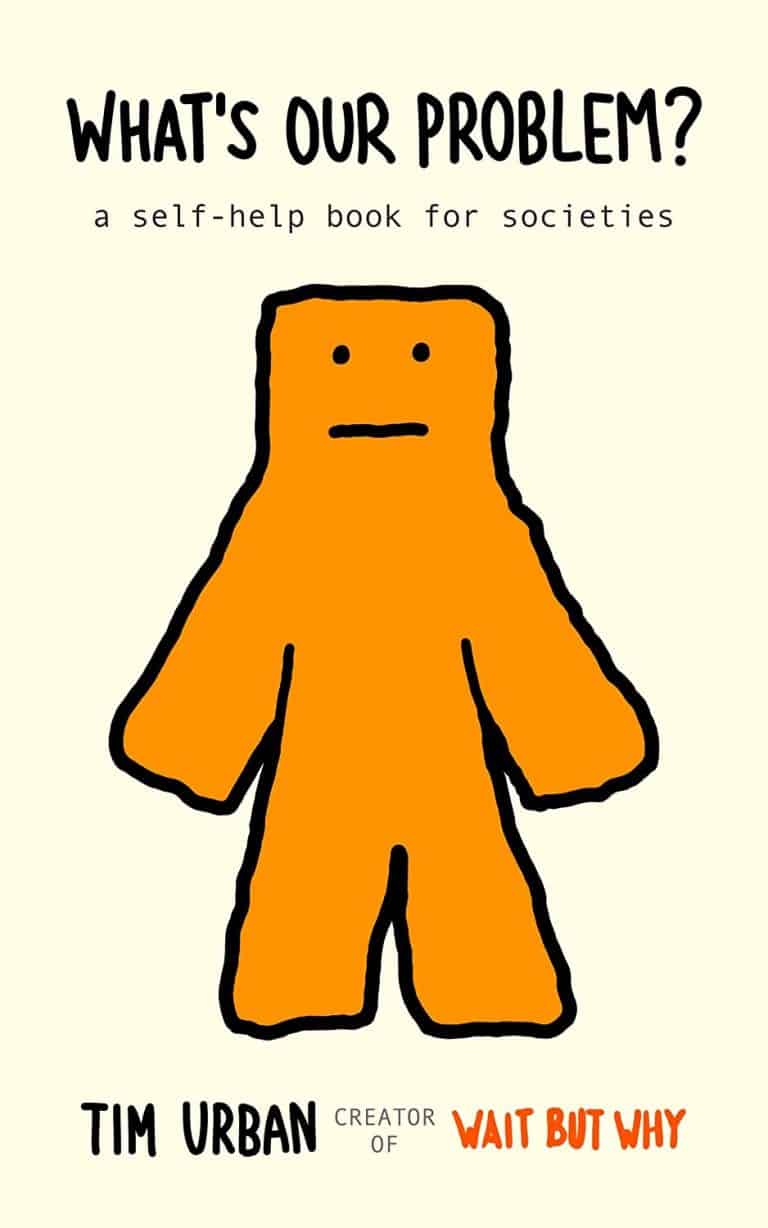Нотатки:
It’s not necessarily the most accurate takes that rise to the top, but those that are most likely to make people click the retweet or share button—those that have the catchiest wording and hit the right emotional buttons.
On social media, these voices disproportionately drive the conversation, making people feel like things are even more nasty and polarized than they actually are.
In religious or political groups bound by shared belief, belief itself is typically tied to social status. From medieval Christianity to modern North Korea to every hardline cult you can find, the coolest way to be cool is to talk about how great the leaders and their ideas are and how awful the out-group is, and the fastest way to get yourself in big trouble is to openly question those ideas. The specifics vary but the concept is the same: the social environment incentivizes ideological conformity.
If the culture stands up for itself in the face of the challenge with a loud, proud “that’s not how we do things here,” the attempt at idea supremacy fails and the open discourse is protected. If the culture doesn’t, the culture is ceded to the idea supremacists, and the space is transformed into an Echo Chamber.
As the cultural tide shifts, the cost of open resistance grows.
There’s only one way a scholarly institution, full of biased thinkers, can keep itself consistently pointing toward truth: every theory that emerges must survive a gauntlet of people trying to prove it wrong.
When our psyches are down on the low rungs, consumed with this mix of exhilaration and fear, it’s easy to forget that something cruel is happening to a real human. The Primitive Mind specializes in dehumanizing members of its out-group, a delusion easier to sustain when the person is just an online avatar.
What’s less fair game is pressuring others to boycott the businesses you disapprove of by promoting the notion that “anyone who doesn’t boycott this business is one of the bad guys.”
Each punishment is a warning to everyone else in the institution: “You are no longer in the safety of an Idea Lab. You are now in an ideological Echo Chamber whose rules will be heavily enforced.” In that kind of environment, most people simply go silent.
If we extend unlimited tolerance even to those who are intolerant, if we are not prepared to defend a tolerant society against the onslaught of the intolerant, then the tolerant will be destroyed, and tolerance with them.
The Economist points out that every authoritarian who suppresses free speech justifies it as a means of protecting people.
Criticism attacks ideas, cancel culture punishes people. Criticism enriches discussion, cancel culture shuts down discussion. Criticism helps lift up the best ideas, cancel culture protects the ideas of the culturally powerful. Criticism is a staple of liberalism, cancel culture is the epitome of illiberalism.
I don’t believe what you believe, and I don’t have to. I defend your right to hold, express and live by your own belief system, but you have no right to impose any of it on me.
When students are taught, their minds expand and open. When students are indoctrinated, their minds narrow and close.
When vocal dissenters […] are punished, it scares others into silence.
If flat-earthers gained enough power to punish those who argued against the flat-earth worldview and intimidate most round-earthers into silence, continually amplify the flat-earth worldview from the most prominent and reputable platforms, teach people that the earth is flat in companies and schools, and pressure people to outwardly proclaim their belief in flat-eartherism, the number of people who believed the earth was flat would rise dramatically.
My problem is with SJF’s tactics—the fact that it’s an expansionist golem that attempts to spread itself not through persuasion but through bullying, smear campaigns, loyalty oaths, guilt by association, and other coercive measures.
No political group in a liberal society should have the power to destroy a person’s livelihood or reputation at will.
In a podcast episode about the infamous brutal executions carried out by the Catholic Church in the 1600s, Dan Carlin made a point that stuck with me: “The most horrible procedures were done on devout Christians by even more devout Christians.”
When any movement—no matter how noble—falls into the hands of a low-rung tribe, it ends up in a backward place, usually hurting the people the original movement wants to help.
Mass confusion allows divisive ideologies to indoctrinate more people, who join their armies of intimidation, causing more people’s lights to go dark as the danger of speaking your mind rises. Silence is contagious, and as it spreads, the big brain loses its ability to think straight and society grows ever more confused. This is the vicious cycle that makes a society forget history.
We all have out-groups and we all dehumanize the people in them. We’re all tribal. We’re all hypocrites. We’re all wrong. Because we’re all human.
Everyone believes they are fighting on the side of the good, the right, the vulnerable—even your opponents.
You certainly don’t have to like everybody. But when you’re disgusted by a person or a group of people, you’ve gotten swallowed up by human craziness.
Remind yourself that whatever you’re putting out there in the world will win you the respect of some people and lose you the respect of some others. And ask yourself: whose respect do I care about?
Golems rely on the delusion of pluralistic ignorance (when no one believes but everyone thinks everyone believes).

